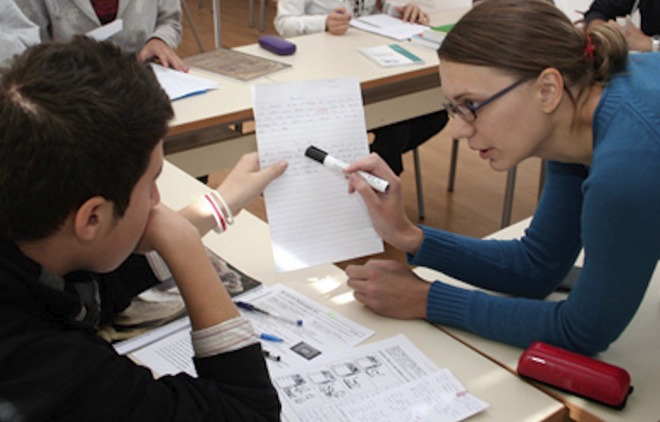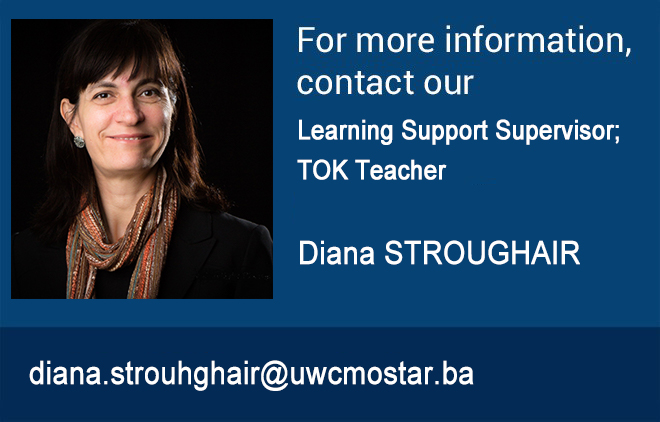Learning support
In addition to nurturing close relationships between students and teachers, UWC Mostar provides support for students through a schedule of formalized meetings between teachers and students, as well as through two faculty positions, “tutors” and the Learning Support Coordinator.
Tutor system
All first year students are assigned a faculty “tutor” in their first year based on their preliminary subject choice, in the hopes that the tutor is also one of your teachers. Second year students are given the opportunity to choose their tutor at the end of the first year.
The tutor is the primary faculty member responsible for a student’s overall educational program at UWC Mostar. This means that a tutor is the CAS supervisor; is responsible for tracking a student’s academic performance and class attendance; for any disciplinary issues a student may have; but also is responsible for generally supporting a student through their education at UWC.
Tutor meetings are held as a group every two weeks on a regular schedule, but tutees are also encouraged to meet their tutors individually if necessary outside these group tutor meetings.
Learning Support Coordinator
The role of the Learning Support Coordinator is to support students who have particular learning needs or challenges with regard to their potential success in the IB. These are likely, A) students from disadvantaged academic and/or socio-economic backgrounds who have not yet developed the learning skills necessary for success in the IB; B) students who otherwise have particular learning needs or challenges, e.g., learning disabilities, extended or frequent illness/excused absence, et al.
The Learning Support Coordinator is Diana Stroughair. You may contact her at:
The job of the Learning Support Coordinator is:
- To coordinate with teachers and tutors to identify students in need of additional learning support
- To meet individually with identified students on a regular basis to help develop essential learning skills, such as: note-taking; information organization; computer skills; class participation; question formation; time management; an ability to self-examine and identify approaches to studying that optimize love of learning as well as knowledge of course content; self-advocacy skills and an understanding of when to seek adult help and of the importance of doing so
- To coordinate and supervise Supplementary English lessons
- To provide academic support through consultations with teachers, tutors, and administration on how best to support particular students, including those with gaps in their academic backgrounds, those who are struggling in particular subject areas, and students with learning differences
- To visit classes both to observe particular students in classroom settings and to provide feedback to teachers about the needs of particular students/types of learners
Schedule of individual meetings
In addition to all other reporting and regular communication between students, teachers, and tutors, there will be three scheduled individual meetings between students and subject teachers, and in subsequent terms, three individual meetings between students and tutors.
Student-teacher meetings
At these meetings, teachers review with students their performance through the prior term, share all of their grades for that term and clarify how they are calculated if need be, and communicate ways that the student can improve their performance in the subject. Teachers can use these meetings as a basis on which to write the term reports.
For first years, the meetings take place in the last 1-2 classes (depending on class size) of Term 1, and on the Monday before graduation. For second years, the meetings take place in 1-2 classes when mid-term grades come out in Term 1.
Student-tutor meetings
At these meetings, tutors and students review the student’s performance in the prior term and reflect on strategies for improvement. At the end of the meeting, tutors write their tutor report from the term and students write a reflection, both of which are incorporated into the term report. These comments reflect not only on the past term, but also set goals for the coming term.
For first years, the meetings will take place in the first week of Term 2. For second years, the meetings will take place in the first week of classes, and again in the first week after the mid-term grades in November.

